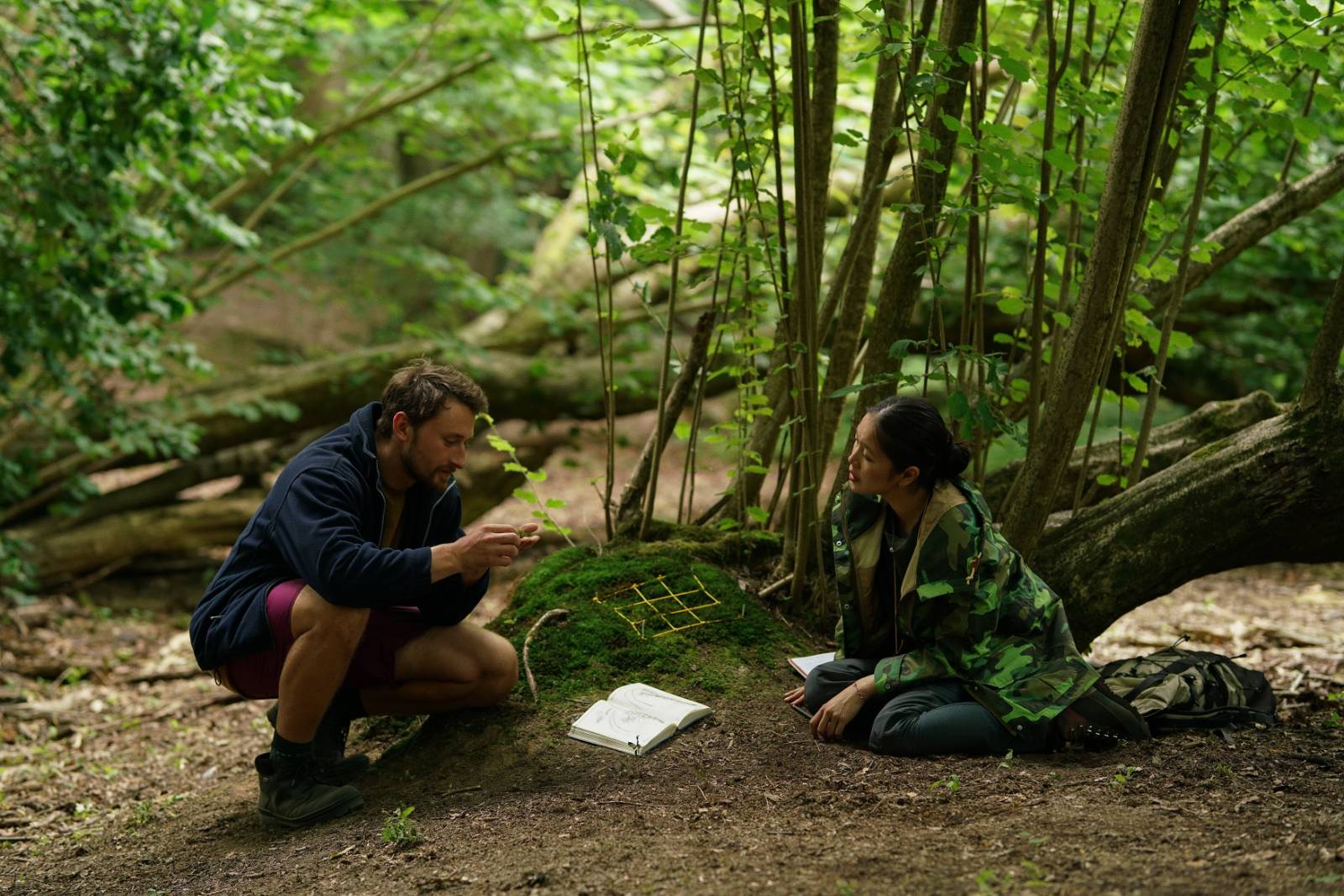For anyone keeping tabs on Bas Devos’ career, it’s notable that the drama of his latest film Here is set in motion by something as benign as a pot of soup. A charming portrait with a flânuerial spirit, the film follows a Brussels-based Romanian construction worker who, having decided to move home, cooks what’s left in his fridge, packages it up, then gifts it to family, friends and––much later––a Belgian-Chinese woman doing a PhD in moss. She is played by Liyo Gang and he is played by Stefan Gota. It’s 81 minutes long, has relatively little dialogue, and tugs the heartstrings in all the best ways. It might be the most benevolent film of this year.
It hasn’t always been like this for Devos, a 39-year-old filmmaker from Belgium. While 2019’s Hellhole––a eulogy for a city in mourning––had style to burn, its pessimism felt strained. He addressed those concerns with Ghost Tropic, released the very same year; yet despite that film’s fever dreams of warmer places, and the pleasant acts of kindness that propelled the story, it played out almost entirely at night. Here kicks off at nighttime, too, but is warm enough that our hero can walk the streets in cargo shorts.
Stefan Gota plays Stefan, and he is an endlessly amiable fella. On travels across Brussels, he meets his sister to discuss his plan: an old friend has landed in jail and Stefan feels obliged to pay him a visit. Planning to drive, he takes his car to a garage and ends up sharing a bowl with the men working there––they’re so pleased with this development that they cut him a deal. In between these little encounters, Stefan wanders the streets with his eyes wide open, seeking new experiences. During a lovely summer downpour he takes shelter in a Chinese restaurant and meets Shuxiu (Liyo Gong), who has been working there to supplement her studies. Later, when Stefan meets her for the second time, he finds her collecting samples: “What you’re holding in your hand is like a micro-forest,” she explains. It could be the tagline of this entire film.
That sense of delicate perception is infectious. Here is a film flush with everyday pleasures: balmy nights and sunny days, leafy trees, the sounds of birds, summer rain. It’s also about how these things tend to make you feel: relaxed, nostalgic, even romantic. In press notes Devos references Ursula K. Le Guin’s The Carrier Bag Theory of Fiction as a key influence. Therein Le Guin wrote that the earliest, thus most-defining human tool was not the spear but the bowl––her argument being that a society based on stories of cooperation (gatherers) and not heroism (hunters) might have been a far healthier one than what we’ve inherited. It’s a great sentiment, and a nicely complimentary thing to hold in mind while watching Here, which keeps its meanings shrouded in lingering sequences of natural beauty that appear more like dreams.
There are other reasons to cherish it. Anyone who saw Alexandre Koberidze’s What Do We See When We Look at the Sky? two years ago, during the most restricted COVID winter, were grateful for its sunny respite. This year we have Here to thank––a film so dappled in summer melancholy it would make even the most fatalistic Berliner forget seasonal gloom. A jury led by Dea Kulumbegashvili named it the best title in this year’s Encounters and I’m inclined to agree. Devos’ plot devices (a busted car, heavy rainfall, chance encounters) are almost the stuff of romantic comedy but he offsets their comforting familiarity with flashes of surrealism and a pleasantly meandering mise-en-scène that allows ample space for the imagination to take over. Devos’ films can feel overly studied, slick to the point of being contrived, yet with each passing work––each reduction to the most potent flavors––he edges closer to something truly great. Here is his finest yet, an almost-perfect little film.
Here premiered at the 2023 Berlinale.

